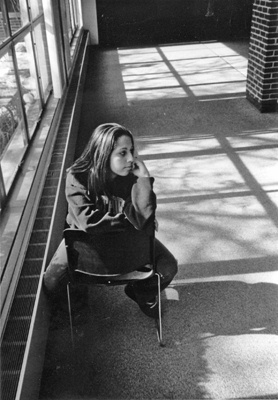All Nonfiction
- Bullying
- Books
- Academic
- Author Interviews
- Celebrity interviews
- College Articles
- College Essays
- Educator of the Year
- Heroes
- Interviews
- Memoir
- Personal Experience
- Sports
- Travel & Culture
All Opinions
- Bullying
- Current Events / Politics
- Discrimination
- Drugs / Alcohol / Smoking
- Entertainment / Celebrities
- Environment
- Love / Relationships
- Movies / Music / TV
- Pop Culture / Trends
- School / College
- Social Issues / Civics
- Spirituality / Religion
- Sports / Hobbies
All Hot Topics
- Bullying
- Community Service
- Environment
- Health
- Letters to the Editor
- Pride & Prejudice
- What Matters
- Back
Summer Guide
- Program Links
- Program Reviews
- Back
College Guide
- College Links
- College Reviews
- College Essays
- College Articles
- Back
How I Became an Apologetic Mess
My mom told me recently that I apologize too much. I’ll say sorry at things that aren’t my fault. Like once when I saw somebody walking in the opposite direction as me and moved out of the way, mumbling a “sorry”, which is really just me apologizing for existing there at that moment. I notice it too, like when somebody says something bad has happened to them and I apologize as if I had anything to do with it. I notice that I do it, but still do it anyway. I told my mom that it’s her fault, she’s the reason that I do it so much. Not because she does it herself, but because of the way that she explained apologizing to me when I was younger.
When I was about six years old, I got in trouble with my mom for picking on my sister and was asked to apologize to her. When she said this, instead of apologizing I bit my lip and clamped my mouth shut.
“Apologize,” she repeated firmly. I shook my head, mouth still closed and felt my eyes become wet. I’m in for it now, I thought dejectedly. She told me again, and again I shook my head. She told me again; “Apologize to your sister.” Tears began to leak from the corners of my eyes and I scrubbed at them with my hands. My mother’s stern voice left her at seeing this and was replaced with a confused, concerned one that said “all you have to do is say sorry, why are you crying?”
“Can’t,” I choked, looking at the blurry carpet. But I softened up a little hearing the kind voice I was used to instead of the stern one.
“Why can’t you?” she asked. “It’s not that hard. Just tell her you’re sorry and everything will be okay. You’re not in trouble. ” At this, I started crying harder.
“Yes it does. Sorry means you’re mad at me. It means I’m bad,” was the best way six-year old me knew how to express how I was feeling, that I was ashamed of myself and that apologizing was like admitting that I did something really bad. I didn’t want anyone mad at me--still don’t--no matter what, so when my mom got stern with me I didn’t want to “admit” it by saying sorry. I can’t even really remember what I was told to apologize for, probably something small-- like stealing my sister’s barbies or calling her names-- just that I felt like a really terrible person solely for the fact that I was asked to apologize.
“That’s not the purpose for apologizing at all,” my mother explained to me, “Saying sorry is a way to ask for forgiveness and makes things better, not a statement about how bad of a person you are. Calling your sister names is bad, but by saying sorry, you are showing her that you truly feel bad and want to make things better between you two. So technically, not saying sorry like you are now is showing her that you are a bad person, so you better hurry up and show her what kind of person you can be.”
By saying this, she completely changed my take on what apologies mean, showing me that it’s a very good thing and shows people that you are conscious of their feelings. As I ran to my sister to apologize for being mean to her, I thought about everything bad that I had ever done and how I would apologize for each and every thing. Of course, I couldn’t actually think of everything bad I had ever done, let alone apologize for all of it, just thinking about it made me feel a little better about myself and the person I was. I thought of the future too, and the person I would strive to become that apologizes for mistakes that they’ve made and does it properly.
I think that because of her telling me this, I apologize a lot--maybe even too much-- to let others know that I understand the mistakes that I make, and that I feel bad for causing them harm because of them. I think I sometimes am too aware of other peoples’ feelings and begin to apologize too much because I think that I am causing them harm, when I’m not doing anything bad enough to apologize for. I speak to people through the apologies that I make, to communicate to them that I’m trying my best to make them happy and that when I make mistakes, they are just me being careless or not thinking things through. I want people to know that apologies are important to hold relationships together, to admit mistakes and move on past them, that apologies are not bad unless overused to the point that they lose meaning.

Similar Articles
JOIN THE DISCUSSION
This article has 0 comments.
